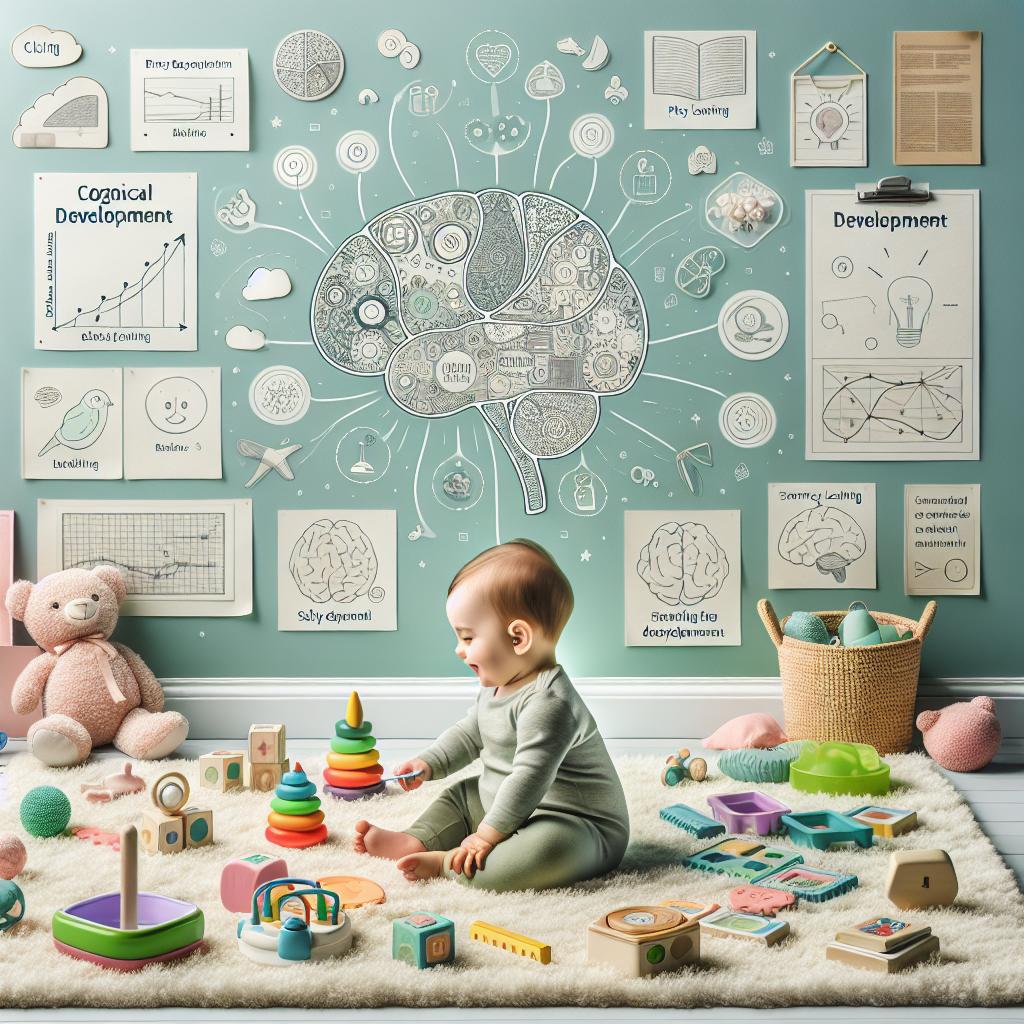Understanding Baby Cognitive Development
What is baby cognitive development and why is it essential? Simply put, it’s the process by which a baby learns to think, remember, solve problems, and understand the world around them. It’s a crucial part of their growth as it sets the groundwork for their future learning, understanding, and behavior. Combining a mixture of nature and nurture, stimulating the brain development of your little one is vital. Don’t fret, though! With some engaging activities and early learning techniques, you can help boost this cognitive growth in a fun and easy way!
Recognizing the Signs of Cognitive Development
Before diving into the engaging activities that can enhance cognitive development, let’s take a brief look at how you can recognize this growth in your baby. Some signs include:
- Starting to explore their surroundings, showing curiosity
- Reacting to familiar voices and faces
- Beginning to understand cause and effect
- Developing memory skills, example: recognizing familiar toys
- Starting to solve problems, like how to pass a toy from one hand to the other
Understanding these indicators can help you assess the progress of your baby’s cognitive development and identify areas you could help them improve.
The Importance of Engaging Activities
Once the signs of cognitive development are visible, it’s time to start introducing some engaging activities to encourage further growth. According to a study published on RaisingChildren.net.au, play and fun activities are at the core of a baby’s cognitive development. They provide an excellent opportunity for babies to investigate their world, learn new skills, and interact in new ways, fostering their early learning abilities.
Easy and Fun Activities for Stimulating Brain Development
With that in mind, here are some easy and fun activities you can do at home to stimulate your baby’s brain development:
- Talk and Sing to Your Baby: This can be as simple as narrating your actions during the day, singing nursery rhymes or reading children’s books. It encourages language development, an essential aspect of cognitive growth. Learn more about how this works in this article.
- Play Peekaboo: It’s an oldie but a goodie! Peekaboo helps your baby develop object permanence—the knowledge that objects still exist, even when they’re not visible.
- Introduce Texture Play: Different textures stimulate the senses and encourage your baby to explore tactically. This exploration can lead to improved recognition and memory skills.
- Offer a Variety of Toys: Different types of toys offer different learning opportunities. For example, shape sorters can help improve problem-solving skills.
As you can see, there are several engaging activities to stimulate your baby’s brain development. Yet, this is just the tip of the iceberg!
Further Support for Early Learning
Remember, these activities are a stepping stone. There are plenty of other resources available that provide more comprehensive and detailed strategies. For example, the American Academy of Pediatrics highlights the role of play in promoting healthy child development.
Another excellent resource is this report from the National Academies of Sciences, which outlines the science of baby cognitive development. For additional personalized advice, don’t hesitate to reach out to other parents, child development experts, or turn to online platforms such as Quora for advice and support.
In the journey of your baby’s cognitive development, every little bit helps. While the process may seem overwhelming at first, with patience, love, and the right activities, you can provide a supportive environment that fosters your child’s growth.
Learn from Reputable Sources
In acknowledging the sea of information available on cognitive development, it’s crucial to ascertain the credibility of your sources. Professional organizations like the New Horizon Academy and the National Association for the Education of Young Children (NAEYC) offer insightful principles and strategies that caregivers can follow. From structuring developmentally appropriate learning environments to understanding the different stages of child development, these resources can serve as comprehensive guides.
Boosting Baby’s Brain Power
One great strategy proposed by the professionals at Scholastic is to incorporate cognitive boosting activities into everyday routines. Simple tasks like helping your baby reach a toy, showing them colorful images, or responding to their actions can accelerate cognitive development. These moments nurture your baby’s curiosity and help them understand cause and effect, promoting intellectual growth.
The Significance of Brain Activity in Cognitive Development
Perhaps not surprisingly, research has made it clear that brain development and cognitive development are intertwined. A report from the National Center for Biotechnology Information (NCBI) goes in-depth, stating that the first few years of life are a crucial period for brain development and subsequent cognitive skills. It underscores the importance of early experiences, socio-economic resources, and adequate nutrition in shaping cognitive and emotional development.
Setting a Solid Foundation
Cognitive development is not a race—it’s a journey—and the pace may vary from one child to another. So, as a caregiver, it’s important to channel your focus into creating a nurturing environment that encourages cognitive development at its natural pace. By incorporating cognitive-strengthening activities into your baby’s routine, staying informed through reliable sources, and fostering a positive caring environment, you’re laying a solid developmental foundation for your baby.
Where to Go From Here?
As you’ve learned, promoting a child’s cognitive development encompasses various factors—from active engagement to adequate nutrition. While these initial activities and resources represent a great start, the learning process is endless. It’s never premature or late to delve deeper into cognitive development. So, as you go down this path, remember to stay flexible, patient, and above all, enjoy these precious moments with your child.
